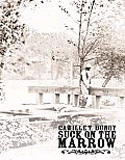Review by James Benton
Red Hen Press
P.O. Box 40820
Pasadena, CA 91114
ISBN 978-1-59709-468-9
2010, 88 pp., $18.95
www.redhen.org
I love these poems. I am conflicted by them. On the one hand, they reveal and pay tribute to the human sorrow created by an old and, thankfully, dead institution—at least in this country. By individuating the history of slavery in America, by making it personal, Dungy gives life to history, voice to the silent, and honor to the lost. She gives us poems vivid in their imagery, and powerfully evocative in their occasion, and she never blinks. Each poem distills its emotional momentum into language that is accessible and economical. And so I love them. The mood here is dark and deeply tragic, with subject matter ranging from flogging, escape, forced prostitution, and rape, to the tender love of husbands and wives and children longing for one another’s embrace.
On the other hand, I can only react to these poignant poems through the lens of an outsider, and as such, I also perceive an ongoing racial divide one wishes were bridged after so much time. And perhaps that is the ultimate lesson to be taken from this volume: ours is forever a shared but divided history. Dungy reminds us of wounds cut too deep to heal, even after a century and a half. She creates a dual consciousness on both sides of the divide, and it is this dual consciousness that permeates each poem. This duality takes several forms. From “The Unwritten Letters of Joseph Freeman”:
A man
whose livelihood depends on stealing
the toil of other people’s bodies
must keep a keen eye on his own
most dear and precious things.
Without trivializing their historical implications, these words also define the enslavement by a corporate aristocracy of today’s working classes. In fact, Dungy renders the plight of the present more humanely comprehensible by the comparison. Here, then, the duality takes the shape of the past informing the present.
Consider the following lines from “Lesson,” (quoted here in its entirety) in which the dual consciousness arises from the impossible conditions of slavery:
the child of the breast gets the child of the womb
eats
the table served the roasted meat scraps
the savory piesthe womb’s child kneels and swallows
the child of the breast knows hope only comes to the one who sucks
the best milk and claims the labor the marrow
of working hours chews on the bone
Dungy takes advantage of the fractured environment of the line to emulate a fractured social order, while she uses italics to establish a vertical relationship between “the child of the breast” and “the child of the womb.” The lines can be read horizontally or vertically, producing a three dimensional world of opposing realities inextricably entangled. In this way, the poem illustrates and enacts the condition of living in two social spaces simultaneously, one visible, one hidden, one pretense, and one authentic, together an act of physical and emotional survival. Dungy uses this same technique to serve varying purposes. In “Code,” for example, the italicized words, when read separate from their surrounding context, are an advertisement for the sale of two house servants; in “Runaway ran away,” the italicized words are the text of a wanted poster. In all, these italicized portions operate in the manner of an underground communication system, a counterpoint in opposition to the surrounding text. The effect is accessible and clever without ever becoming a mere gimmick.
Suck on the Marrow does not resolve any of the conflicting emotions attendant upon the shame of American slave history. Rather, it confronts the past in order to preserve it in all of its duality, both its ugliness and its humanity. As a reader—an outsider gazing upon the inner lives of slaves, hearing them speak to one another from a century and a half distant—I want to empathize and to plead for my own innocence: That was not me! And yet the fracture of our history, the fracture of social order and individual, our national open wound as Dungy presents it was all of us, it is all of us, then and now. Indeed it is as Dungy finds it in the (italicized) words of Thomas Jefferson: “I tremble for my country when I remember that God is just.”
Comments are closed.